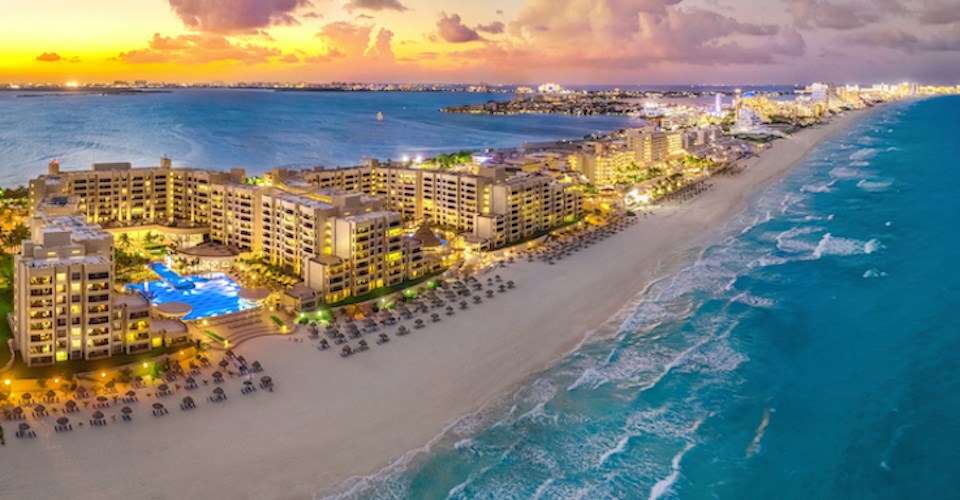Some areas are currently on the “Do Not Go” list.
Canadians dreaming of visiting the sunny beaches of Cancun or Acapulco may want to check the latest Mexico travel advisories before booking their tickets.
Mexico, the second-largest tourist destination for Canadians after the United States, receives more than three million visitors from the Great White North each year. However, in recent years, some areas have seen an increase in the incidence of violence and crime in popular vacation spots.
The Government of Canada continues to advise travelers to take the following measures: High alert in Mexico Because criminal activities and kidnappings are on the rise.
Although many cities across the country are largely safe to travel to, Global Affairs has been warning travelers for months about rising levels of violence, urging travelers to exercise local caution and avoid traveling to certain areas. We urge you to reconsider or avoid it altogether.
As of November 2, 2023, Canada is warning against “essential” travel to Guerrero in the wake of Hurricane Otis, which killed dozens of people. . Towns are isolated due to damage to transport and communications networks, and the state is grappling with the threat of “armed violence, robbery and looting in cities and roads.”
Certain areas are particularly affected by banditry and violence, including:
- Acapulco
- Highway between Acapulco and Zihuantanejo
- Highway between Acapulco and Chilpancingo
Although the Guerrero advisory excludes the popular tourist destinations of Ixtapa/Zihuatanejo and Taxco, extreme caution is advised in these areas.
Canada updates travel advisory for Mexico
In 2022, Canada and its neighbors south of the border issued updated advisories for parts of Mexico due to violent crimes such as murder, kidnapping, carjacking and robbery.
Popular tourist destinations such as the Mayan Riviera (Cancun, Playa del Carmen, Puerto Morelos, and Tulum) and Acapulco continue to experience high rates of this type of crime.
In January 2023, Canada issued a regional alert for the state of Sinaloa after widespread violence erupted following the arrest of a prominent drug trafficker. At least two passenger planes were hit by gunfire, and authorities closed three airports, including Mazatlan International Airport (MZT).
A regional alert asking Canadians to avoid “non-essential travel” to Sinaloa remains in place, but the resort city of Mazatlan has been removed from the list of regional advisories.
Cities where the Canadian government is warning people to avoid non-essential travel include:
- all chihuahuas
- All of Colima except Manzanillo city
- Entire state of Coahuila (excluding the southern part of the state below the Saltillo-Torreón highway corridor)
- All of Durango except Durango City
- in guanajuato
- Highway 45 between Leon and Irapuato
- Area south of and including Highway 45D between Irapuato and Celaya
- All of Michoacán except Morelia City
- in the state of Morelos
- Lagunas de Zempoara National Park and surrounding areas
- Sosocotla City
- in Nayarit
- Areas within 20 km of the border between Sinaloa and Durango
- Tepic town
- Entire state of Nuevo Leon except Monterrey
- All of Sonora except Hermosillo, Guaymas/San Carlos, and Puerto Peñasco
- Entire state of Tamaulipas
- all zacatecas
Travelers should always check the latest government advice before booking flights from Vancouver to Mexico. You should also purchase comprehensive travel insurance when booking your flight. This will cover the cost of your flight ticket in case you are unable to depart due to unforeseen health or other emergency reasons. Accidents such as missed connections, interrupted or lost baggage are also covered.
A Canadian travel advisory with a “Level 3” or “Level 4” warning may be filed under the Travel Cancellation and Disruption Plan. However, if travelers book flights or accommodation after the advisory has been issued, they will not be able to make a claim.
Additionally, Canadians must always register the trips they take online before leaving so that the government can contact you in case of an emergency.
What if I need help while in Mexico?
If you have an emergency in Mexico, dial 911.
If you have a problem on the highway, call roadside assistance. Angeles Verdes is a highway patrol service that provides free assistance on all major toll highways from 8 a.m. to 6 p.m. local time.
For inquiries to Angeles Verdes, please contact: Download the app on your mobile device. In case of an emergency, you can also contact us by dialing 078 or 800 006 8839 (toll-free in Mexico).
Canadians in need of emergency consular assistance should call 001-800-514-0129 (toll-free from Mexico only), +1 613 996 8885, or text +1 613-686 to contact Global Affairs Canada Emergency. Please contact our Monitoring and Response Center. -3658, via WhatsApp (+1 613-909-8881), via Telegram Canada Emergency Overseas, or Email.
